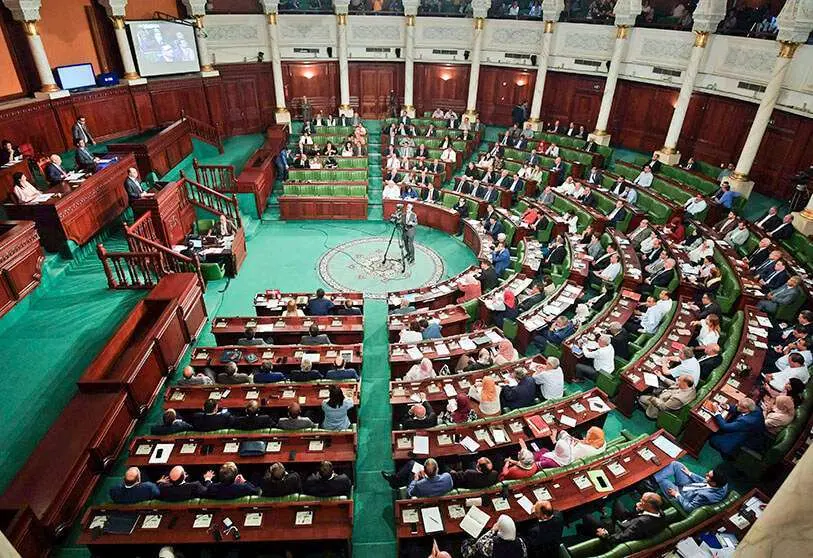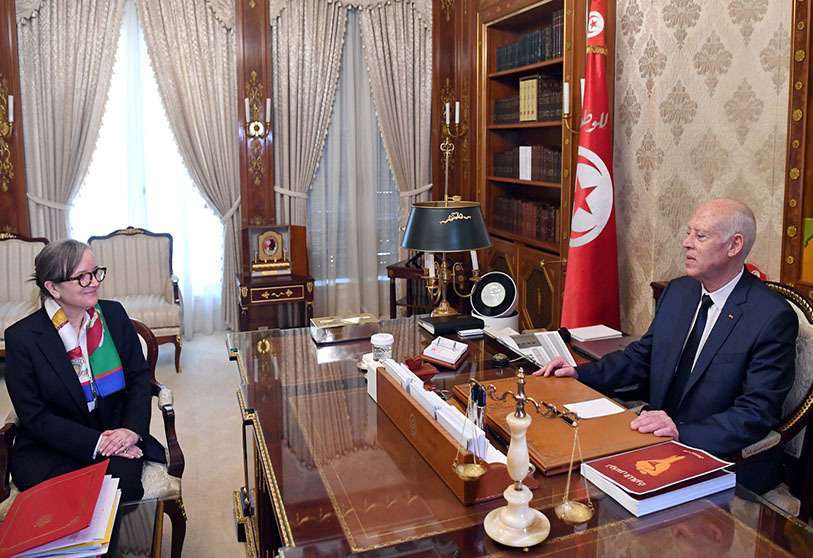Tunisia's long battle to curb its soaring public debt and halt inflation

Tunisia's economic crisis is still at a point where no growth is in sight. The nation's public debt continues to climb and the economic situation continues to register no gains. Despite registering a budget surplus in the first quarter of this year, the nation is still unable to revive its economy and poverty continues to worsen.
The latest report published by the country's Ministry of Finance and Economy has revealed that public debt continues to grow. At the end of March it recorded an increase of 8.6% and this looks set to continue this year, as the government is unable to cover the nation's rising expenditure despite continued revenues and aid. This also hampers GDP growth and the improvement of the economic situation.
Currently, Tunisia's public debt has risen to $35 billion. This figure is divided into the current domestic debt, which stands at around $14 billion, while external debt has grown to $21.57 billion.

However, recovery still seems to be a distant goal for Tunisia. The current global situation continues to prevent Tunisia from resuming economic activity. The coronavirus health crisis has had consequences that have led to a positive growth slowdown in the nation, which is proving difficult for the government to overcome.
The report notes that the war in Ukraine has only worsened the situation, and recovery continues to deteriorate due to the high price of obtaining energy and basic materials from the countries involved. Marouane El Abassi, governor of the Central Bank of Tunisia, has made it clear that the repercussions of the conflict will weigh heavily on the resumption of the Tunisian economy and the process is expected to slow down further.
"Tunisia needs additional funds of $1.6 billion this year due to the effects of the war in Ukraine," the governor commented.

"This year, the gas purchase bill could be around $2.6 billion compared to $1.5 billion last year," says Belhassen Chebub, director of energy transition at the energy ministry, who was interviewed by Reuters and had his statement picked up by Atalayar.
The country has already anticipated that these consequences will raise the amount of financing needed to begin recovery. Tunisia is expected to need some $8.2 billion, but this in turn will put pressure on the nation's public finances. The impact will lead to GDP reaching 100% of public debt in the medium term and the authorities are demanding that the constitutional framework be reformed to find a solution.

Despite the bad data, the financial institution remains optimistic that economic activity will soon start to resume. The bank has forecast that public debt will reach 85% this year, but will only increase by a further 0.7% by 2023. Najla Boden, Tunisia's prime minister, said that by early May, the nation's internal and external debts had been paid off.
This is also influenced by the nation securing more foreign exchange reserves due to the relaxation of closure restrictions, the recovery of the tourism sector and the resumption of remittances from compatriots living elsewhere.
Tunisia seems to be looking for a solution to prevent the situation from worsening. Sources close to the government say it is seeking support from the International Monetary Fund (IMF). The government wants the IMF to lend it $4 billion, but the IMF does not seem to agree. In exchange for this money, it is demanding that the nation undergo reforms and spending cuts, such as freezing salaries and subsidies, but the Tunisian government is unwilling to accept.








